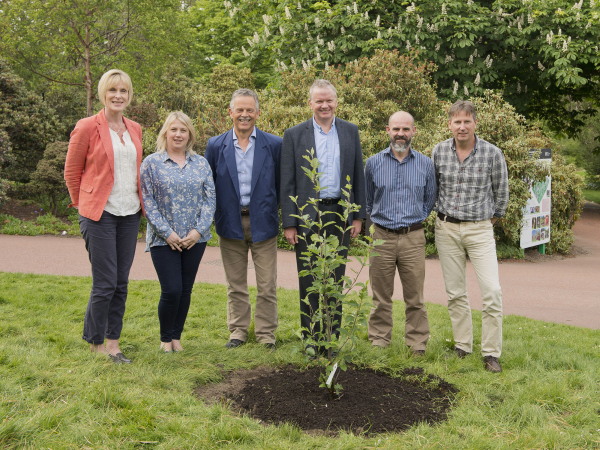Scotland’s plants underpin the health of the nation, but plant pests and diseases can cause major economic, environmental, and social costs. Increased global movements of plants and soil, coupled with the effects of climate change, are allowing novel pests and diseases to take hold or endemic ones to flourish. To raise awareness of these issues, and coinciding with the UK Plant Health Week (19-27 September), Scotland’s Plant Health Centre has launched a set of five Key Principles, which outline important steps to protect Scotland’s plant resources.
Scotland’s five Key Principles for Plant Health are:
- Source plants with care: Human movement of plants is an important pathway for spreading pests and diseases which may hitchhike on plants, in seed, soil and packaging.
- Keep it clean: Biosecurity best practice can reduce the spread and establishment of plant pests and diseases. These organisms may be microscopic and can easily go unnoticed.
- Plan now for future challenges: Designing, modifying and managing systems to increase their resilience can reduce the impacts of pests and pathogens in future.
- Embed plant health in policies and practices: Developing consistent practices, incentives, guidance and regulation can minimise the risk of outbreaks and their consequences.
- Promote widespread understanding and awareness of plant health threats: Informed individuals and businesses can minimise threats to plant health and reduce the unwanted impacts of pests and diseases.
These principles will be the focus of a series of short stories, released over the course of UK Plant Week, to bring the Principles to life and celebrate Scotland’s plant-based assets. These will go live on the Plant Health Centre website (www.planthealthcentre.scot ) starting on Saturday 19th September.
 © The James Hutton Institute
© The James Hutton Institute
Professor Ian Toth, director of Scotland’s Plant Health Centre, said: “Plant diseases don’t respect borders and cause problems across all plant species, from iconic forest trees to the smallest of wildflowers and taking in ornamentals, garden plants and all our crop species as they go.
"With thousands of plant species in Scotland and 1000 novel pests and diseases listed on the UK plant health risk register, there has never been a more crucial time to pool resources and bring scientists and land users together to act.
“We hope those with a need to consider plant health, from mass planting of trees or best garden practice, will find our Key Principles useful. The principles will be the focus of resources published during the UK Plant Health Week, touching on diverse Scottish plant health topics, so keep an eye on our website www.planthealthcentre.scot for updates.”
Scotland’s Plant Health Centre was launched in 2018 and is funded by the Scottish Government through its Rural and Environment Science and Analytical Services Division. It brings the plant sectors for forestry, horticulture, environment and agriculture together to co-ordinate plant health knowledge, skills, needs and activities across Scotland.
The Centre Directorate is headed up by the James Hutton Institute, and has sector leads from Scotland’s Rural College (agriculture), Royal Botanic Garden Edinburgh (horticulture and environment) and Forest Research (forestry).
For more information: The James Hutton Institute
The James Hutton Institute
info@hutton.ac.uk
www.hutton.ac.uk
